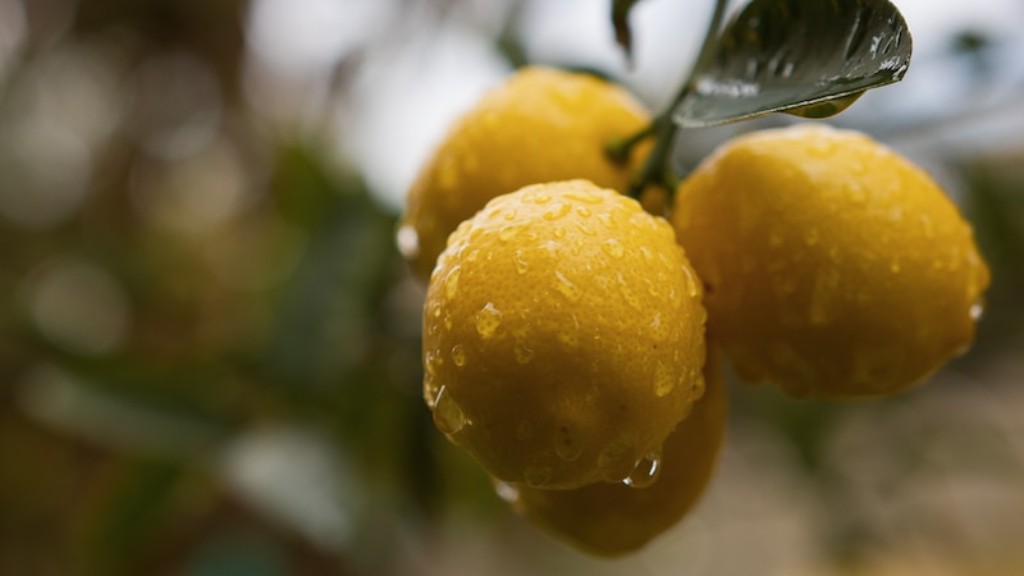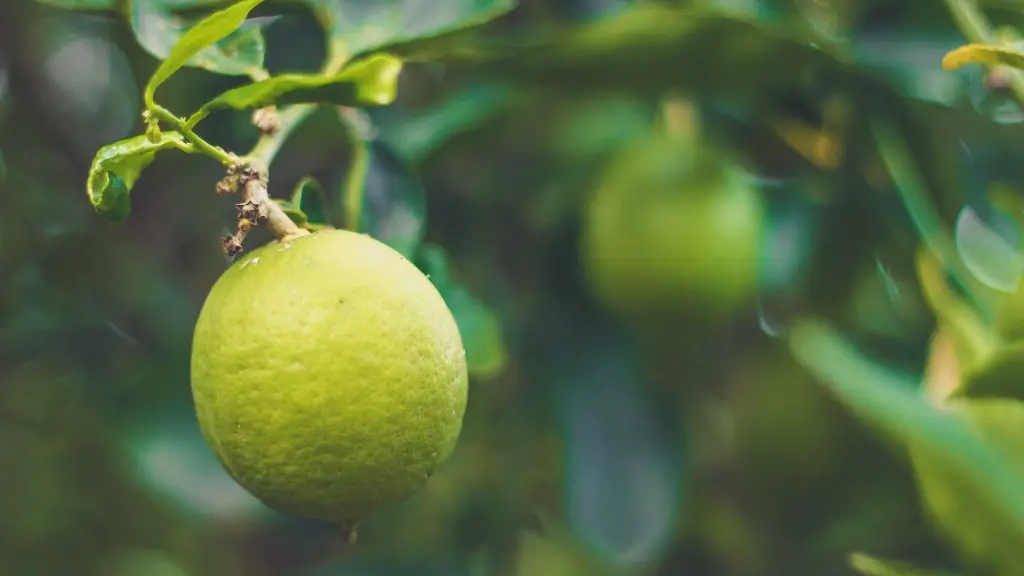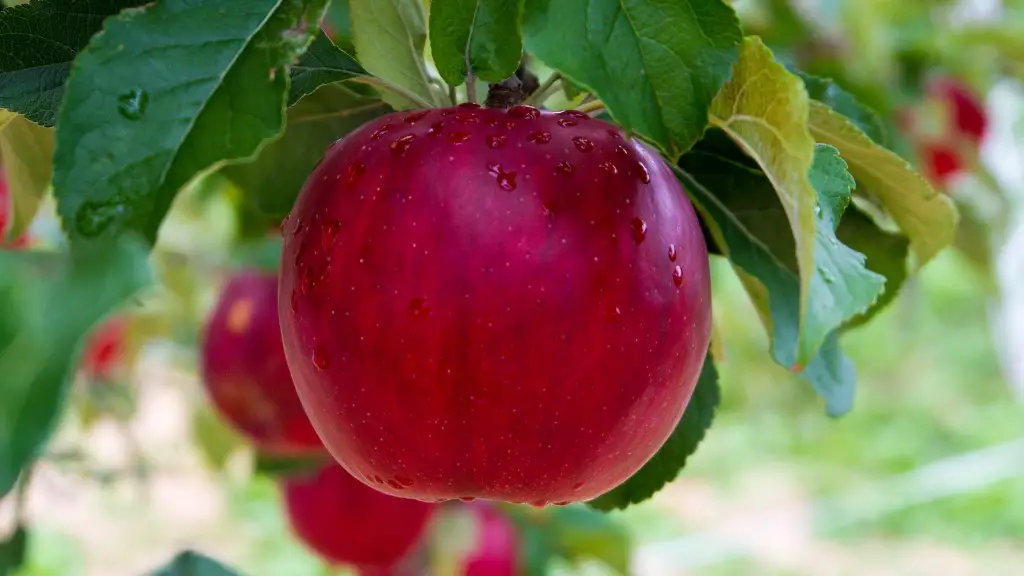Planting lemon trees at home is a popular trend right now. Many people are drawn to it because of the health benefits of lemons, such as their antifungal, antiviral, and antibacterial properties, as well as their ability to boost immunity and digestion. But is it really a good idea? Here are some things to consider before deciding if it’s good for you to plant a lemon tree at home.
Growing Conditions
Lemon trees thrive in hot, dry climates and require minimum of 6 hours of full sun each day. They cannot tolerate frost, so if you live in an area with cold winters, you will need to take measures to protect your tree. If you’re able to provide a warm, dry environment, then planting a lemon tree at home is definitely a great idea.
Space Requirements
Lemon trees can get quite large, so you need to consider how much space you have available before growing one in your home. The trunk and branches require a lot of room to spread out and the roots can be quite invasive, so make sure you’re prepared to give your tree plenty of space. Additionally, lemon trees can take up to 10 years to produce fruit, so you will need to ensure that you have a space for your tree for a decade or more.
Variety Matters
There are many different varieties of lemon tree, so it’s important to select the right one for you. Varieties that produce fruit quickly, are tolerant of cooler climates and are ideal for pot culture are the best choices for home gardeners. Make sure you do your research and select a variety that is best suited to your local climate and gardening conditions.
The Care Factor
Lemon trees require regular pruning and care. In winter, you’ll need to protect it from frost and in summer, water and fertilize it regularly. Prune your tree in late winter or early spring, and make sure to protect it from pests and diseases. Pest control and fertilization will also be necessary throughout the growing season.
The Pros
For those who have a sunny spot and are ready for a long-term commitment, growing a lemon tree at home can be a great idea. Not only do you get to enjoy the fresh scent and taste of lemons, you’ll also get the physical benefits of their vitamin C, antioxidants, and other nutrients. Additionally, the bloom of the lemon tree is incredibly fragrant and quite beautiful, making it a great addition to any garden.
The Cons
Growing a lemon tree at home can be a lot of work and not everyone enjoys the upkeep that it requires. Lemon trees also need to be pruned and cared for regularly, so you’ll need to be prepared to dedicate some time and effort to your tree. Additionally, if you live in a colder region, you’ll need to invest in a specialized frost-protection plan for your tree.
Harvest Time
If all the conditions are met, you can expect to harvest your lemons within 10-12 months. That said, some varieties take longer to produce fruit, so if you want to get a quicker harvest, choose a variety that is known to bear fruit sooner. You’ll need to watch for signs that your lemons are ripe enough to be picked, such as the yellow/orange colour, fragrant scent, and firm texture. Additionally, you’ll need to act fast when your lemons are ready; unlike store-bought lemons, home-grown lemons tend to spoil quickly.
Improving Yield
If the yield of your lemon tree isn’t as high as you’d like, there are some techniques you can use to improve it. Feeding your tree regularly with a balanced fertilizer during the growing season is essential for high yields. You should also prune your tree every year, removing damaged, diseased, or dead parts. In addition, making sure your tree has adequate water (without letting the soil become soggy) will also help to produce bigger harvests.
Diseases and Pests
Lemon trees can be prone to certain diseases, such as citrus greening or citrus canker, as well as pests like aphids, mealybugs, and scale. Regularly inspecting your tree for signs of disease and pests is essential, as is acting fast when any signs appear. You should also practice integrated pest management, which involves using safe and natural methods to protect your tree. Finally, if your lemon tree is struggling, you can use a natural fungicide to help protect it.


